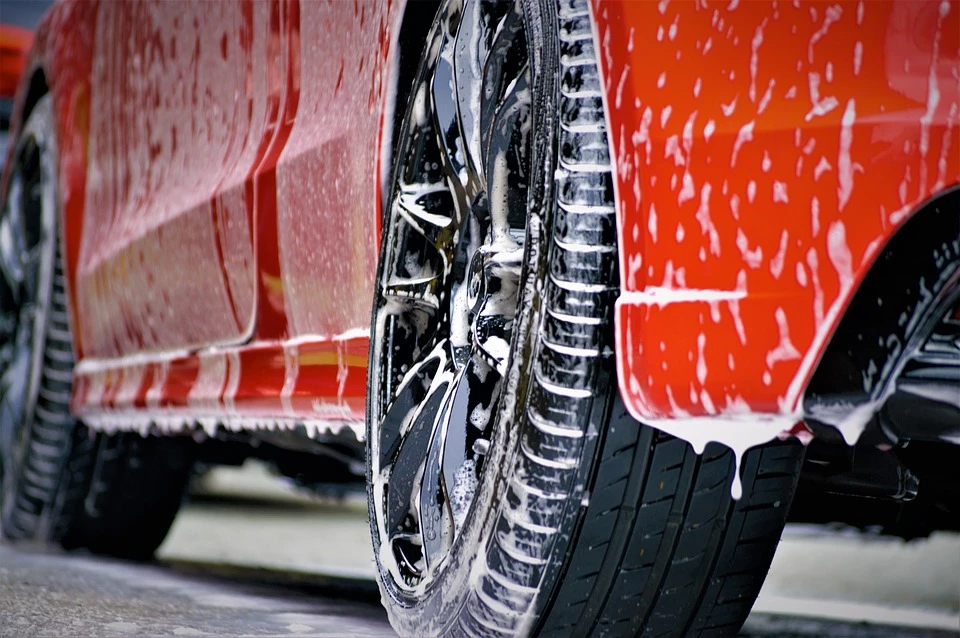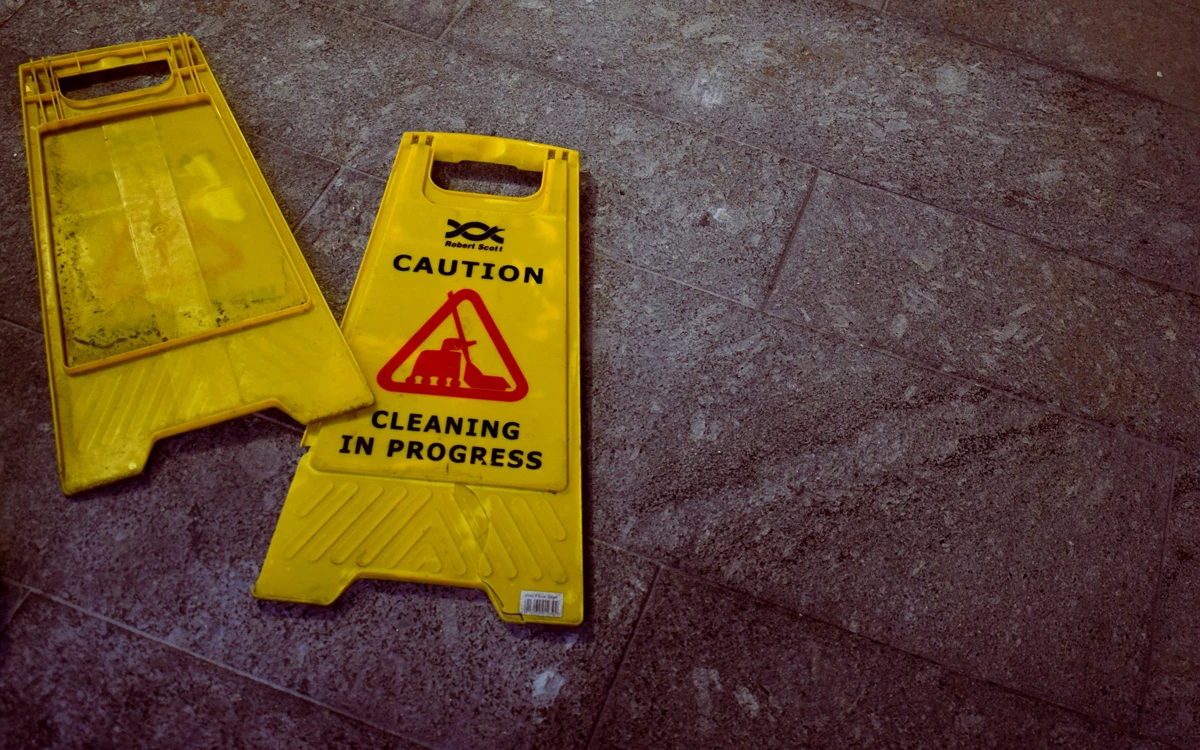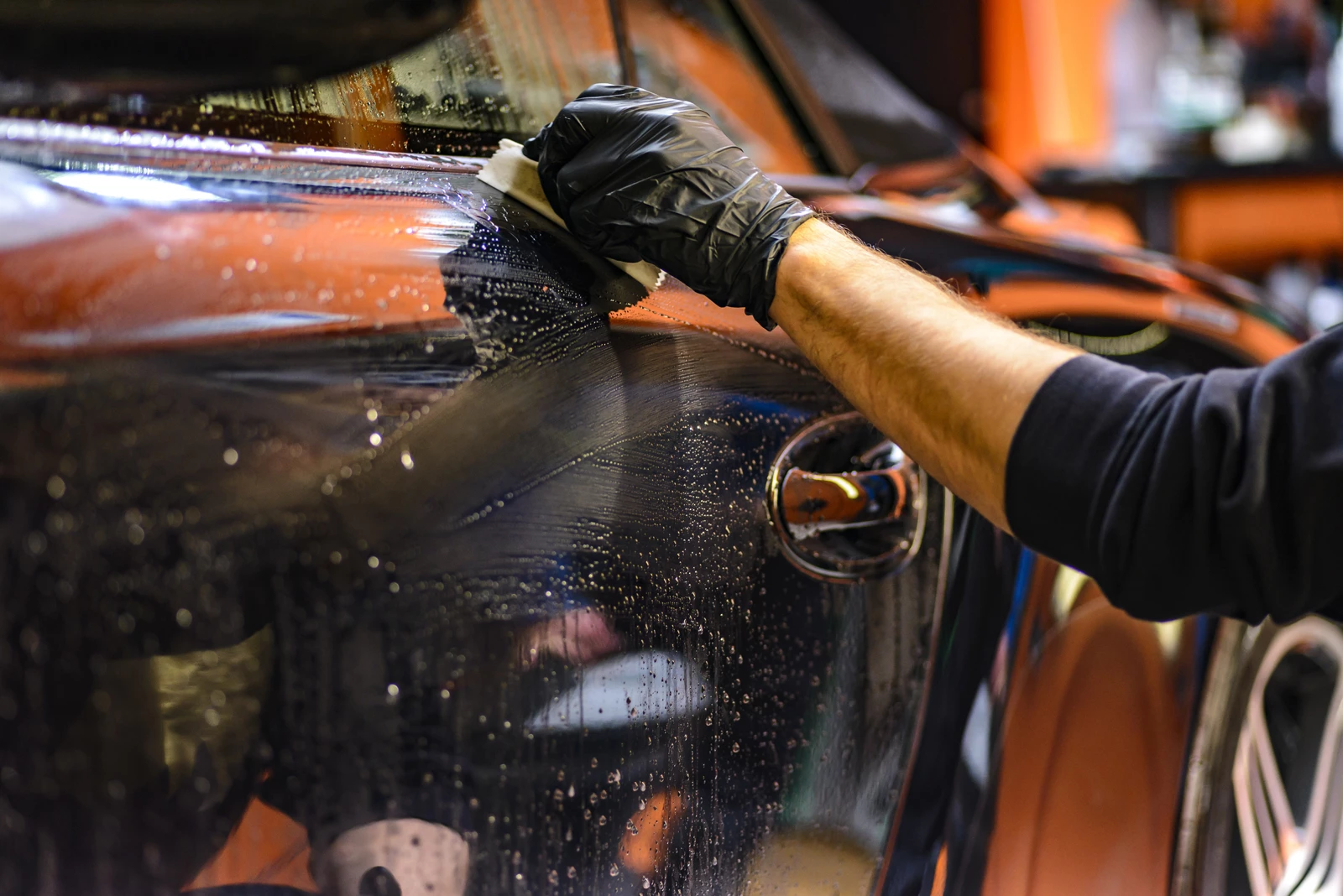22/07/2020 | Category: Commercial Insurance

It’s the stuff of nightmares – a customer trusts you with their beloved car and it ends up with a big scratch while in your care. No valet wants to have to explain that one to the owner or pay to sort out the damage.
Car valeters are only human, and accidents will happen but there is a lot you can do to reduce the risk of vehicles coming to harm while in your care.
You can also protect yourself from the financial costs of repairing a customer’s car by having motor trade insurance in place.
Let’s take a look at some of the most common hazards for car valeters to avoid.
Damage to vehicles
It’s impossible to rule out accidents entirely, but often damage to a vehicle is caused by an underlying problem. This may be workers who are overstretched or have insufficient time for each task, poor motivation or inadequate training.
Good lighting, reliable tools and good maintenance will all help to prevent harm coming to either vehicles or workers. Training is also a vital part of risk management.
Slips and trips
Car washing areas often have wet floors, perhaps with soaps, oils and polishing agents adding to the slipperiness. Electrical leads, water hoses and tools might be in the work area and there may be ladders and other obstacles around.
Slips and trips pose a threat to customers and workers alike. The places where customers are allowed to enter should always be kept clean and clear. Working spaces should be organised to minimise hazards, for example by having a place to store equipment when not in use and a regular cleaning regimen to remove debris and build-up.
Workers should have slip-resistant shoes and they must be trained in the risk of slips and trips and how to avoid them. Your motor trade insurance may not pay out if you are careless or negligent in protecting workers’ safety.

Sprains and strains
Cleaning cars is hard work, often involving awkward positions, repetitive movements and kneeling. Employees are at risk of sprains and strains, but this risk can be reduced by taking reasonable measures.
These include encouraging workers to stretch and take regular breaks, and providing training in safe ways to use tools, lift heavy objects and reach awkward places on a car. You may need to use an external expert to help deliver training or advise you on the precautions required by your business.
Electrical hazards
Electrical tools help to clean cars better and faster, but they are not without risk. Car washing involves lots of water, which brings a higher risk of electrocution. Tools should not be used in wet areas unless they are designed for that purpose, and workers should not have wet hands when using electrical equipment.
Workers should stand on non conductive mats when handling electrical equipment in wet environments. Good training should be provided in how to use electric tools and equipment safely, while the layout of the working space should be designed to prevent workers from coming into contact with grounded surfaces such as machinery or pipes.
Good maintenance is also important – defective equipment should be taken out of use immediately, and either replaced or repaired by a suitably qualified person.
Moving vehicles
Car valeting involves a lot of vehicles arriving, departing and being moved around the working space. This raises a risk of collision with people or objects.
To keep workers and customers safe, good safety practices should be adopted including speed restrictions, requiring suitable licensing and training to drive vehicles, use of a hand brake and zero tolerance for workers messing around with or near vehicles.
A manager should be given responsibility for overseeing safety in this area, enforcing a comprehensive driver safety regime. Don’t forget to document your processes and decisions, as this could be valuable in the event of a claim.

Chemical exposure
Valeting involves a lot of different substances such as detergents, polishes, waxes and solvents that can be hazardous when not used correctly. Chemicals should always be used, handled and stored in accordance with manufacturer instructions.
Workers may need personal protective equipment such as gloves and masks while using chemicals, and they should be able to wash hands before eating, drinking or smoking after using chemical substances. Employees should also be clear about how each chemical should be used, to avoid damaging vehicles.
Heat exposure can also be an issue, especially where steam cleaners are in use. This may result in serious burns if safety precautions are not followed. There should be warning signs around relevant areas, and measures should be taken to ensure good ventilation so workers do not overheat.
Quality insurance you can trust
The hazards involved in valeting should not be underestimated. A claim for damage to a vehicle, or harm to an employee, or for an injury to a customer while on your premises – there are so many scenarios that could set your business back.
There is also the risk of loss of equipment at your valeting premises – a fire or break-in could see you lose large sums invested in tools, machinery and equipment, not to mention resulting lost trade and harm to reputation.
You may wish to consider public liability cover, product liability cover, business interruption insurance, road risk insurance, employer’s liability cover, buildings insurance, equipment cover and legal expenses insurance.
The exact nature of your business will determine your insurance needs. For example, a valet service operating in a luxury hotel car park will be very different from one based at a busy airport, or a more basic drive-in service.
A valet business thrives or fails based on its reputation for quality and service – good insurance is an important part of operating as a responsible organisation. It only takes a few accidents, injuries or poorly-handled customer complaints to jeopardise the good name of a valeting service and have customers taking their vehicles elsewhere.
Insurance Choice offers motor trade insurance that understands the needs of valeting companies. Why not get in touch to talk through your individual requirements?
Contact Insurance Choice to discuss your needs and get a quote today.
